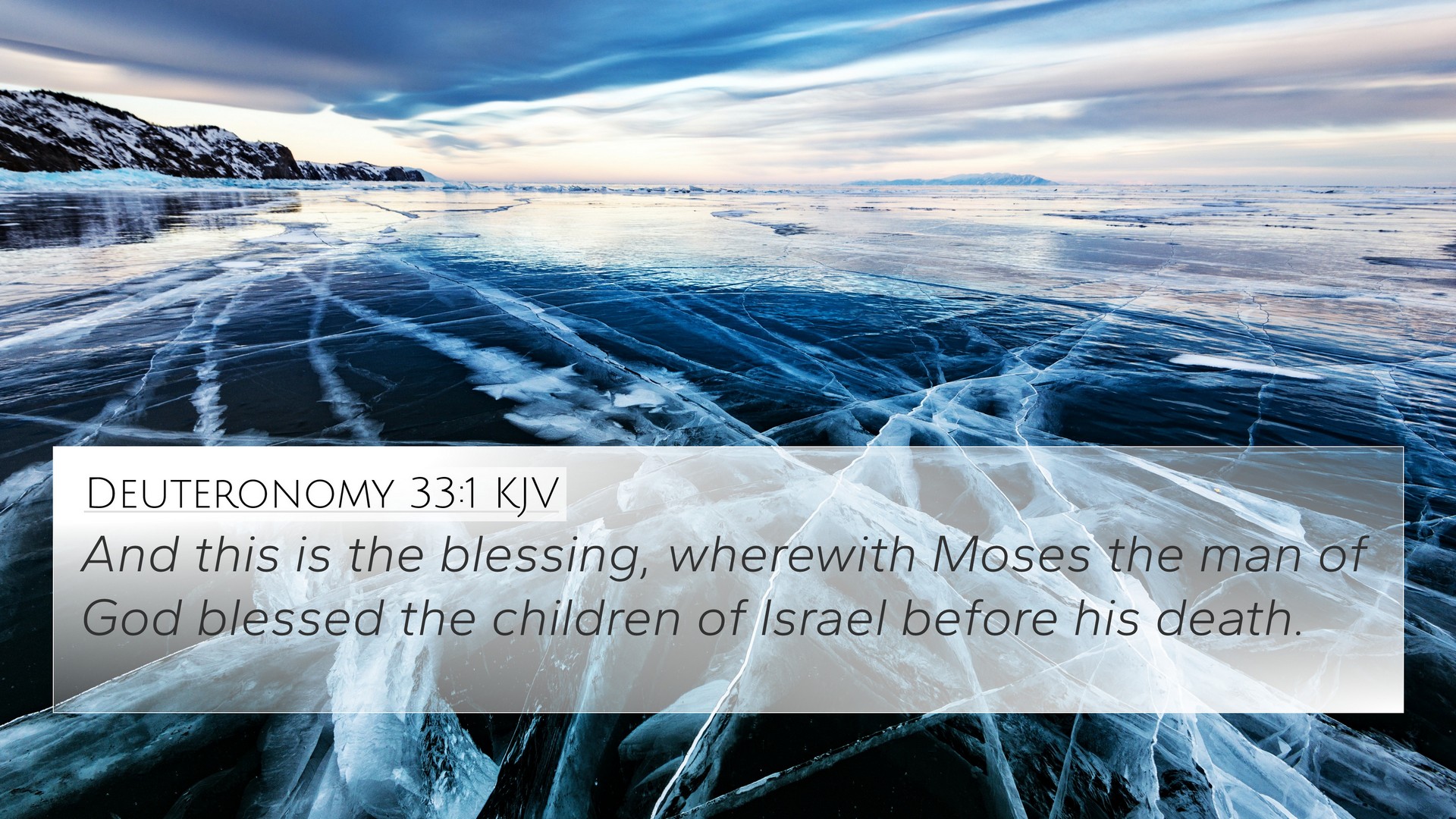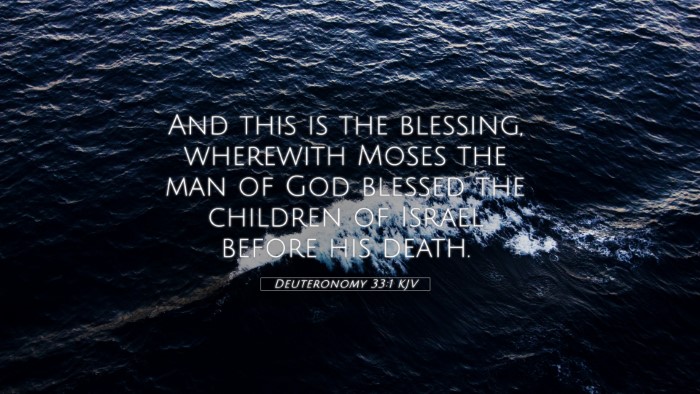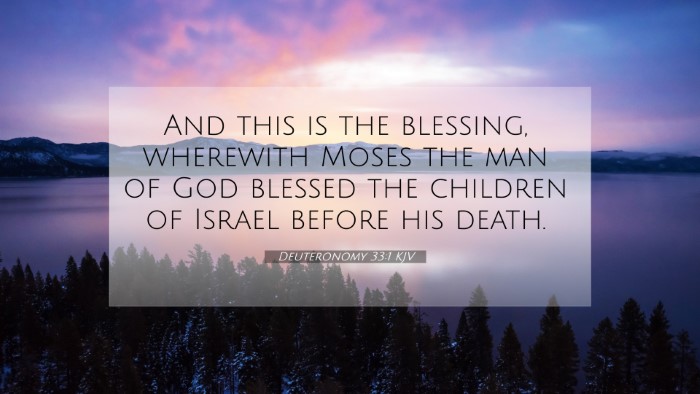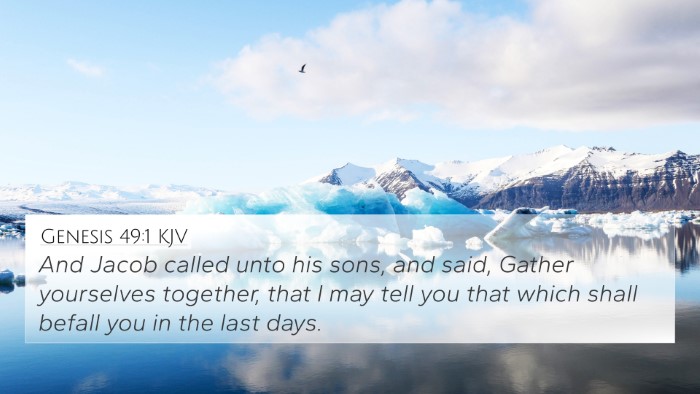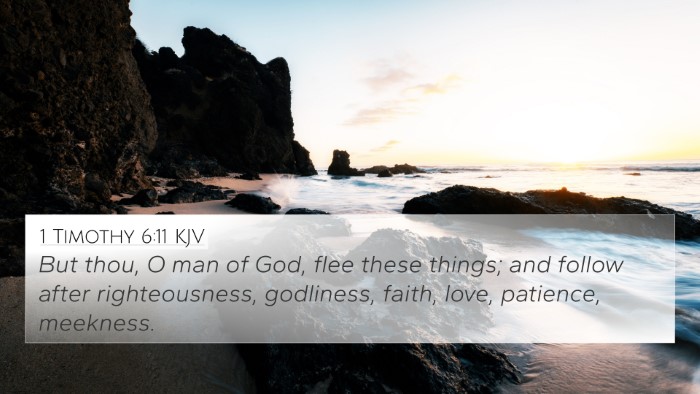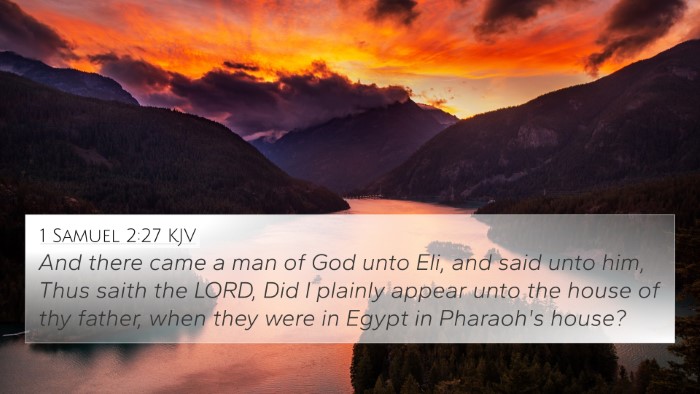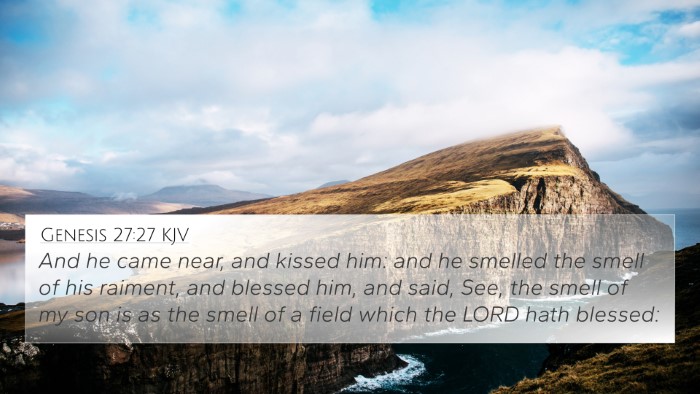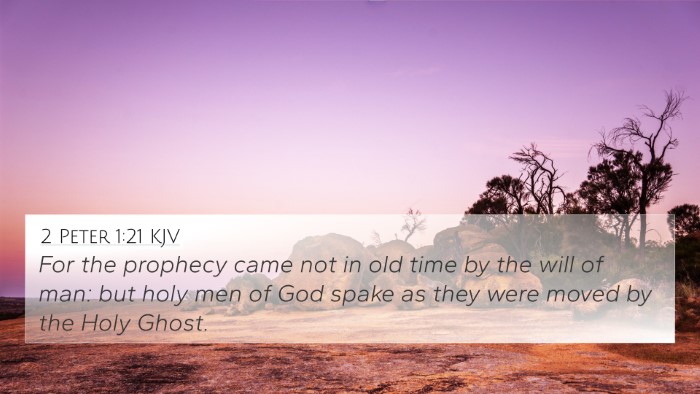Understanding Deuteronomy 33:1
Verse: "And this is the blessing, wherewith Moses the man of God blessed the children of Israel before his death." - Deuteronomy 33:1
Summary of Deuteronomy 33:1
In this verse, we encounter Moses' final act of blessing the tribes of Israel. The significance of this moment lies in its role as the culmination of Moses' leadership and the transition of God’s promises to His people. Moses, identified as "the man of God," emphasizes his revered position and the divine authority behind his words.
Commentary Insights
-
Matthew Henry:
Henry highlights the importance of blessings spoken by Moses, as they are not merely wishes but are steeped in the prophetic spirit. He notes that these blessings reflect God's favor and the covenant relationship established with Israel. Moses’ acknowledgment as the "man of God" signifies the weight of his words, intended to guide and encourage the Israelites as they prepare to enter the Promised Land.
-
Albert Barnes:
Barnes focuses on the context of the blessings, noting that they serve to remind the Israelites of the faithfulness of God throughout their history. He emphasizes that this act of blessing is not only a farewell but also a reaffirmation of God’s abundant grace. By blessing each tribe, Moses acts as a mediator of God's promise as they embark on their new journey.
-
Adam Clarke:
Clarke explains that the blessings Moses bestows are significant for each tribe’s unique character and circumstances. He draws attention to the idea that blessings can fortify the people’s spirits and unite them under the common purpose of serving and glorifying God. Clarke's insight reiterates the continuous thread of divine purpose that weaves through the history of Israel.
Cross-References Related to Deuteronomy 33:1
- Numbers 6:23-26: The priestly blessing of Aaron, reinforcing the significance of blessings among God’s people.
- Genesis 49:1-28: Jacob’s blessings to his sons, parallel in structure and significance to Moses' blessings.
- Joshua 1:6-9: God’s encouragement to Joshua as he leads Israel into the Promised Land, emphasizing the continuity of leadership and blessing.
- Psalms 127:3: The concept of children being a blessing from the Lord, linking to the blessings Moses bestows on the tribes.
- 1 Chronicles 5:1-2: Reminder of the significance of the tribes and their inheritances, through the lens of blessings.
- Ephesians 1:3: A New Testament perspective on blessings, centering on spiritual blessings in Christ.
- Deuteronomy 28:1-14: The blessings for obedience, showing the broader scope of God’s covenant blessings.
Thematic Connections
The themes of blessings and God’s favor in Deuteronomy 33:1 resonate throughout the scripture. This verse serves as a pivotal moment, encapsulating the hope, promise, and divine guidance that characterized the Israelites’ journey. Moses’ act provides a historical context for further understanding how blessings operate within the covenant framework of the Old Testament and beyond.
Inter-Biblical Connections
As we explore the inter-Biblical dialogue present in this verse, we observe a vibrant tapestry of connections spanning across various texts. The reflections on blessings and leadership in Deuteronomy establish a foundation for understanding similar themes in the New Testament, especially in the teachings of Jesus regarding blessings in Beatitudes (Matthew 5:3-12) and Paul’s reflections on the spiritual blessings in Christ (Ephesians 1:3).
Tools for Bible Cross-Referencing
To delve deeper into the connections between Bible verses, consider utilizing the following tools:
- Bible concordance
- Bible cross-reference guide
- Cross-reference Bible study materials
- Bible reference resources for thematic analysis
Conclusion
Understanding Deuteronomy 33:1 through these commentary insights and cross-references enriches our faith and provides a broader perspective on the significance of blessings in scripture. By examining interconnections with other Biblical texts, we can gather lessons of encouragement, faithfulness, and God’s providential care throughout history.
